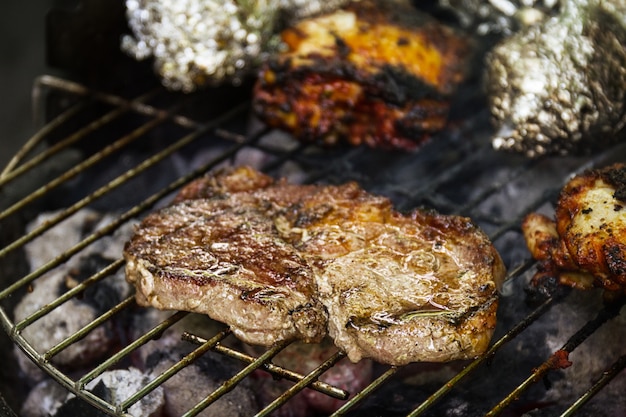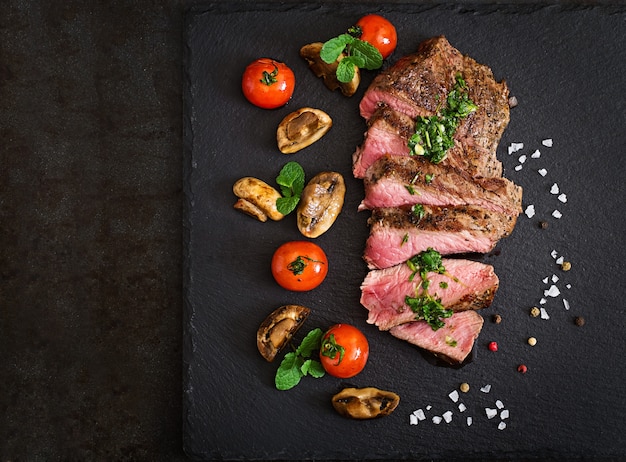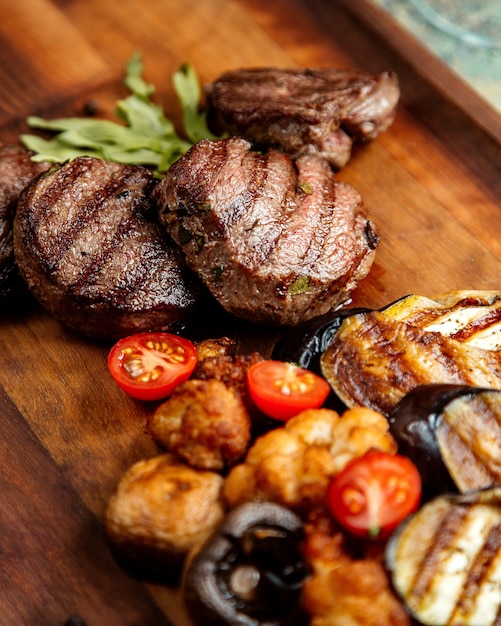Can grilling steak cause cancer?
Introduction
Grilling steak is a popular cooking method that imparts a delicious smoky flavor to the meat. However, concerns have been raised about the potential health risks associated with grilling, particularly the formation of cancer-causing compounds during the cooking process. In this article, we will explore the scientific evidence behind these claims and provide practical tips on how to minimize any potential risks while still enjoying a perfectly grilled steak.
The Science Behind Cancer-Causing Compounds
When meat is cooked at high temperatures, such as during grilling or barbecuing, certain chemicals are formed that have been linked to an increased risk of cancer. These compounds include heterocyclic amines (HCAs) and polycyclic aromatic hydrocarbons (PAHs). HCAs are formed when amino acids and creatine, naturally present in meat, react at high temperatures. PAHs, on the other hand, are produced by the burning of fat and juices that drip onto hot coals or heating elements, causing smoke and flames.
According to the World Health Organization’s International Agency for Research on Cancer (IARC), both HCAs and PAHs have been classified as probable human carcinogens. This means that there is sufficient evidence to suggest a link between exposure to these compounds and an increased risk of cancer in humans. However, it’s important to note that the risk depends on various factors, including the frequency and intensity of exposure and an individual’s overall lifestyle and genetic background.
Minimizing the Risks
While the formation of cancer-causing compounds during grilling is a concern, there are steps you can take to minimize the risks while still enjoying your grilled steak:
1. Choose leaner cuts: Trim excess fat from the meat and opt for lean cuts, as fat dripping onto hot coals can contribute to the formation of PAHs. Marinating the meat before grilling has also been shown to reduce the formation of HCAs.
2. Precook the meat: Partially cooking the meat in the oven or microwave before grilling can help reduce the time it spends over direct heat, thereby minimizing the formation of cancer-causing compounds.
3. Use indirect heat: Position the meat on the grill away from direct flames or coals to prevent excessive charring and smoke formation, which can lead to increased levels of HCAs and PAHs.
4. Flip frequently: Turning the meat frequently during grilling can help prevent charring and promote more even cooking, reducing the formation of cancer-causing compounds.
5. Avoid charring: Remove any charred or burnt portions of the meat, as these areas tend to have higher levels of HCAs and PAHs. Aim for a lightly browned exterior rather than a heavily charred one.
The Role of Other Factors
While grilling steak may contribute to the formation of cancer-causing compounds, it’s essential to consider the overall context of an individual’s lifestyle and dietary habits. The risk of developing cancer is influenced by a multitude of factors, including smoking, alcohol consumption, physical activity levels, and diet. Incorporating a well-balanced and varied diet rich in fruits, vegetables, and whole grains can help offset any potential risks associated with grilled meat consumption.
Dr. Jane Anderson, a nutrition expert, highlights this:
“It’s important to remember that the occasional consumption of grilled steak as part of a balanced diet is unlikely to significantly increase one’s cancer risk. The focus should be on overall lifestyle choices, such as maintaining a healthy weight, being physically active, and eating a varied diet.”
Conclusion
The formation of cancer-causing compounds during grilling is a legitimate concern, but it does not mean that enjoying a delicious grilled steak equates to an immediate risk of cancer. By following some simple precautions, such as choosing lean cuts, pre-cooking the meat, using indirect heat, flipping frequently, and avoiding excessive charring, you can minimize any potential risks while still savoring the flavors of a perfectly grilled steak. It’s crucial to maintain a balanced lifestyle and incorporate a diverse range of healthy foods to mitigate any potential risks associated with grilled meat consumption.



